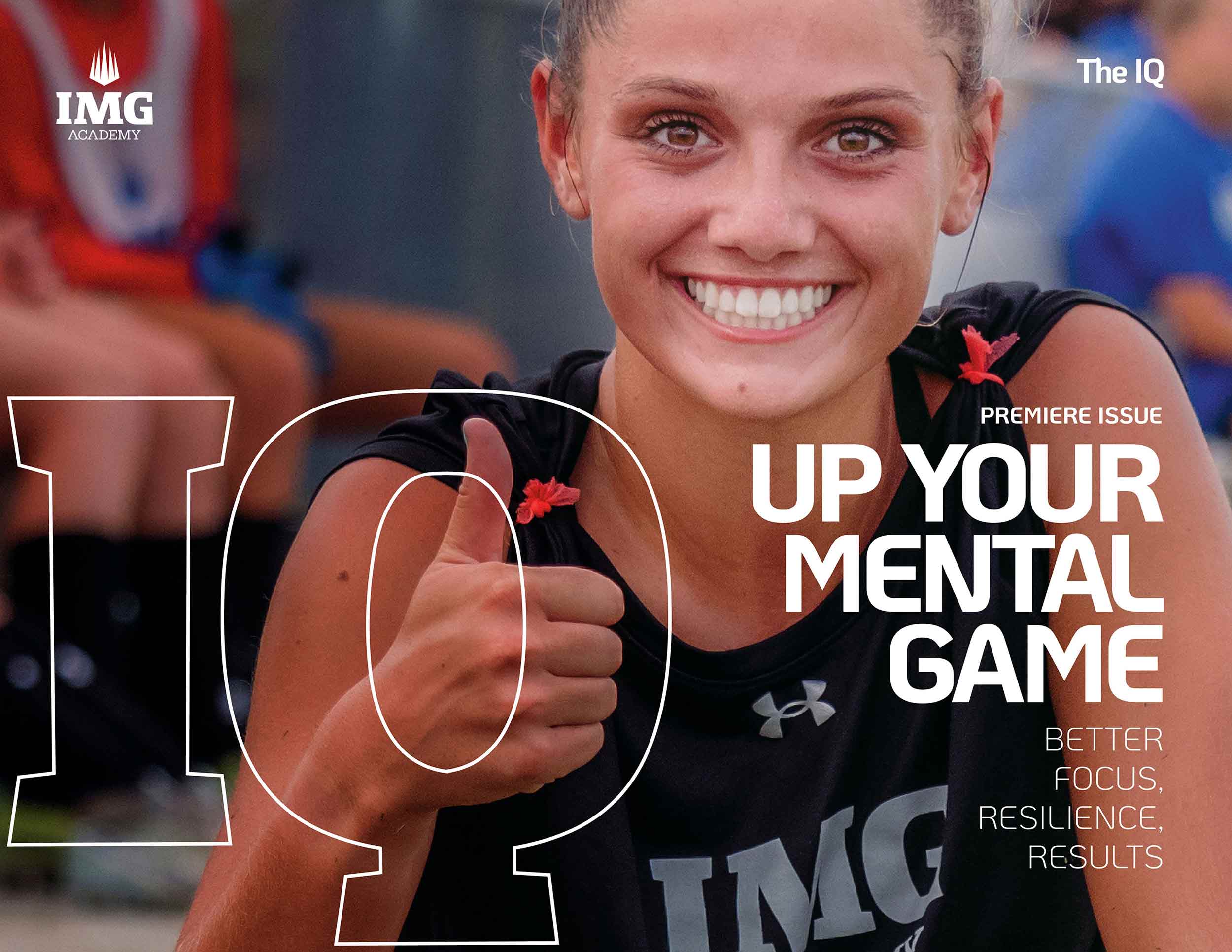It’s time to embrace performance anxiety and normalize nerves. Yes, they have very negative connotations. We associate them with symptoms that aren’t so pleasant: tingling, sweaty palms, a racing heart. But back in caveman times, these symptoms — triggered by a rush of adrenaline released in response to potential danger — caused a fight-or-flight reaction that was potentially lifesaving. The problem is that today, while we are no longer in danger of being hunted down by saber-toothed tigers, our bodies haven’t changed the way we respond to stress. Fortunately, with some clever reframing, that adrenaline surge can be channeled into a force for good.
How to Harness the Power of Performance Anxiety
Rather than trying to eliminate performance anxiety, Elle’ Nelson, a Mental Performance Coach at IMG Academy, suggests embracing your nerves and learning to control them. “We don’t necessarily want to get rid of the butterflies. We want to train them to fly in formation. Because unless we take the driver’s seat, they’re going to control us — and not in a helpful way,” Nelson says.
In fact, trying to get rid of anxiety is counterproductive. “Research has shown that when we experience these heavy, heightened emotions [like nerves], we only experience them for 90 seconds if we choose to accept them. We run into trouble when we resist them. Then, they start snowballing,” Nelson says.
Of course, accepting performance anxiety and all the uncomfortable symptoms that come along with it may seem easier said than done. But there are ways to do it, Nelson says. Here’s how:
Calm Your Nerves with Breathing
One effective way to manage nerves is through focused breathing techniques. Nelson recommends methods such as box breathing or deep inhales followed by silent exhales. For the uninitiated, box breathing is performed by inhaling for four seconds, holding for four seconds, exhaling for four seconds, and holding for four seconds. Another strategy is to take one long, deep breath in, hold for two seconds, then try to exhale silently for as long as possible. Both tactics should be done for 90 seconds. These exercises “allow you to refocus and get oxygen back to the part of your brain that shuts down in response to nerves,” Nelson says.
Say Goodbye to Negative Self-Talk
According to Nelson, there are three types of self-talk: negative, positive, and instructional (i.e., the voice of your coach). Student-athletes should strive to cultivate positive and instructional self-talk, dismissing negative thoughts that hinder performance. “I like to say you’re only allowed to have one voice [positive or instructional] with you on the field,” Nelson says. She also advises student-athletes to challenge negative self-talk by questioning its validity: Has the thing that you’re fearing actually happened before? And if it does again, will it be OK? “This process makes it not as big of a deal as it was in your head,” she says.
Be Prepared
Feeling unprepared can exacerbate nerves, so Nelson is a big advocate of thorough preparation. “Practice and repetition are massively in your control,” she says. And they help student-athletes feel more equipped to handle high-pressure situations.
View Pressure as Excitement
Instead of seeing pressure as a negative force, Nelson encourages student-athletes to view it as an opportunity. Reframing pressure as excitement can shift perspective and enhance performance.
“Excitement always shows up the same way in the body. So, what if the next time those nervous feelings came up, you said, ‘I’m excited for this’?” Nelson says. “Athletes who go from good to great are able to change the way they view pressure into ‘what an opportunity.’ It’s like that Billie Jean King quote: ‘Pressure is a privilege.’ It means there’s something worth fighting for.”
Emphasize Process Over Outcome
Rather than worrying about whether you’ll win or lose, think about factors within your control, such as attitude, concentration, and effort. “Doing so allows student-athletes to stay grounded and focused on their performance,” Nelson says.
Embrace Discomfort for Growth
Although training the mind may feel uncomfortable or challenging at first, Nelson stresses the importance of embracing this discomfort in the name of growth. Just like physical training, mental training requires practice and persistence. However, by learning to manage performance anxiety effectively, you can use it to succeed.
Sign up for the IMG Academy+ Focus on-demand course to learn focus fundamentals, create focus cues and master mindfulness.
Sign Up









